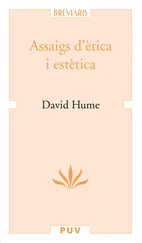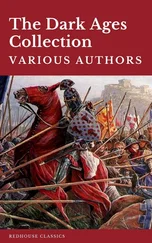The well-to-do members of a town community, whose means made them eligible for membership of the curia or local senate and for magistracy, formed the class of curiales . 108The members of the senate were called decuriones . But in the period of decline these terms were almost synonymous. As the numbers of the curials declined, there was not one of them who was not obliged at some time or other to discharge the unwelcome functions of a decurion. In former times it had been a coveted honour to fulfil the unpaid duties of local administration, but the legislation of the Emperors, from the end of the third century onward, rendered these duties an almost intolerable burden. The curials had now not only to perform their proper work of local government, the collection of the rates, and all the ordinary services which urban councils everywhere discharge. They had also to do the work of Imperial officials. They had to collect the land-taxes of the urban district. And they were made responsible for the full amount of taxation, so that if there were defaulters, they were collectively liable for the deficiency. 109They had also to arrange for the supply of horses and mules for the Imperial post, the upkeep of which, though its use was exclusively confined to Government officials, was laid upon the provincials and was a most burdensome corvée.
The burdens laid upon the curials became heavier as their numbers diminished. Diocletian’s reorganisation of the State service, with innumerable officials, invited the sons of well-to-do provincial families, who in old times would have been content with the prospect of local honours, to embrace an official career by which they might attain senatorial rank; and senatorial rank would deliver them from all curial obligations.
In course of time the plight of the middle-class provincials, who were generally owners of small farms in the neighbourhood of their town and suffered under the heavy taxation, became so undesirable that many of them left their homes, enlisted in the army, took orders in the Church, or even placed themselves under the patronage of rich proprietors in the country. The danger was imminent that the municipal organisation would entirely dissolve. Here again the Emperors resorted to compulsion. The condition of the curial was made a hereditary servitude. 110He was forbidden to leave his birthplace; if he wanted to travel, he had to obtain leave from the provincial governor. His sons were bound to be curials like himself; from their birth they were, in the expressive words of an Imperial law, like victims bound with fillets. 111He could only escape from his lot by forfeiting the whole or a part of his property. Restrictions were placed on his ordinary rights, as a Roman citizen, of selling his land or leaving it by will at his own discretion. Nothing shows the unenviable condition of the curial class more vividly than the practice of pressing a man into the curia as a punishment for misdemeanours. 112
The power of the local magistrates had been diminished in the second century by Trajan’s institution of the curator civitatis , whose business was to superintend the finances of the municipality. The curator was indeed a townsman, but as a State servant he had ceased to belong to the curial order and he was appointed by the provincial governor. By the middle of the fourth century his prestige had declined because the right of appointing him had been transferred to the curia itself. He was overshadowed by the new office of defensor instituted by Valentinian I to protect the interests of the poorer classes against the oppression of the powerful. 113The defensor was to be appointed by the Praetorian Prefect, and he was to be a man who filled some not unimportant post in the State service. But the institution did not prove a success. It was difficult to get the right sort of people to undertake the office, and it was soon bestowed for corrupt reasons on unsuitable persons. Theodosius the Great sought to remedy this by transferring the appointment of the defensor to the curials. 114The prestige of the office at once declined, and the defensorship like the curatorship became one more burden imposed upon the sorely afflicted curial class, without any real power to compensate for the duties which it involved. The influence of all the urban magistracies, which had become anything rather than an honour, was soon to be overshadowed by that of the bishop. And this reminds us of another feature in the decline of municipal life which deserves to be noticed.
That much-abused expression “age of transition” has a real meaning when some fundamental change forces a society to adapt itself slowly and painfully to new conditions. The period of the industrial transformation, brought about by the invention of machinery, in modern states is an example of a true age of transition. The expansion and triumph of Christianity in the third and fourth centuries rendered that period a genuine age of transition in the same sense, and the transition was marked by distress and destruction. Roman and Greek municipal life was inextricably bound up with pagan institutions — temples, cults, games. The interests and habits of the town communities were associated with these institutions, and when Christianity suppressed them, municipal life was deprived of a vital element. For the Church did not succeed in bringing her own institutions and practices into the same intimate connexion with municipal organisation. 115With the passing of paganism something went out of the vitality of ancient town life which could never be restored.
(4) The principle of compulsion was extended to military service. The sons of veterans were obliged to follow the profession of their fathers, with the uninviting alternative of being enrolled in the class of decurions. They were definitely debarred from a career in the civil service. The sons of civil servants too were expected to follow the career of their fathers. 116
We might better understand the economic conditions which the Emperors sought to regulate by tyrannical legislation if we possessed some trustworthy statistics of the population of the Empire and its various provinces. In the eighteenth century, even after Hume had exploded the old delusion that the ancient states in Europe were far more populous than the modern, Gibbon estimated the population of the Empire in the time of Claudius as 120,000,000. It is now generally agreed that this figure is far too high. Any estimate rests on a series of conjectures, but perhaps half this figure would be nearer the truth. According to a recent calculation, which is probably below rather than over the mark, the population at the death of Augustus amounted to 54,000,000, of which 26,000,000 are assigned to the western provinces including the Danubian lands, and 28,000,000 to the Greek and Oriental provinces. 117By the beginning of the fourth century there seems some reason to suppose that the population had increased. This would be the natural result of the development of city life in Spain and Gaul, and the gradual civilisation of the Illyrian and Danubian provinces. On this basis of calculation, which, it must be repeated, involves many possibilities of error, we might conclude that in the time of Constantine the population of the Empire may have approached 70,000,000.
We have indeed some definite evidence that in the fourth century the government was not alarmed by the symptoms of a decline in numbers which had confronted the Emperor Augustus. It may be remembered that among the measures which Augustus adopted to arrest the fall in the birth-rate of Roman citizens he penalised bachelors by rendering them incapable of inheriting, and married people who were childless by allowing them to take only half of an inheritance which if they had children would fall to them entirely. It is significant that Constantine removed this disability from bachelors, 118while Theodosius II abrogated the law of Augustus with regard to the childless. This repeal of a law which had been so long in force may fairly be taken as an indication that in the fourth century no fears of a decline in population troubled the Imperial Government.
Читать дальше












